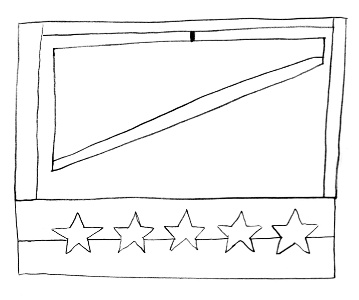The tyrant is always right

I had an interesting encounter today. I was catching an Uber from my house, for some reason I couldn't find one of my shoes, and by the time I got to the car the driver was upset at being made to wait. I thought that was pretty rude; I mean, it's not like I was keeping him waiting on purpose. And anyway he should be nicer about it since I'm his customer. Guess you earned yourself a bad rating, buddy! Don't be so rude next time!
The whole situation ended up making me think about how quickly power turns into the abuse of power, even in tiny amounts. I mean, let's run through it again. Who was actually in the wrong here? I managed to offload responsibility for my missing shoe onto the universe, but in reality I was the one who lost it, and if I'd left more time to get ready it wouldn't have been an issue. All the driver did was sit outside waiting for someone who wasn't organised, and then told me he wasn't happy at being made to wait so long. But my first instinct was that it was unacceptable for him to be unhappy with me. After all, I'm the customer.
I think there's a real danger in the petty tyranny we foster in consumer culture. In some cultures, it's expected that you treat customers as deferentially as you would royalty, bowing and scraping and so on. In the west it's not so bad, but there's still an idea that a customer has a special status. It seems at some point we started paying people not just to give us goods or perform services, but to pretend we're better than them while they do it. For many people, this idea of consumer superiority is their first taste of a very particular kind of power.
And what do we do with it? Well, in my case, I wanted to use it to punish someone for speaking out of turn to me. Of course, I didn't like that he called me out for being late, but as I sat through the car ride in passive-aggressive reflection I eventually realised that he'd done the right thing. Makes you wonder, though. We all think we'd be benevolent dictators, but what happens when we feel insulted or angry, and somehow manage to convince ourselves that it's someone else's fault?
Much like control over your environment makes flaws in your judgement more dangerous for you, power over others makes flaws in your judgement dangerous for them. A benevolent dictator needs to be not only righteous but rational enough to know the difference between genuine and imagined misconduct. Is anyone strong enough?